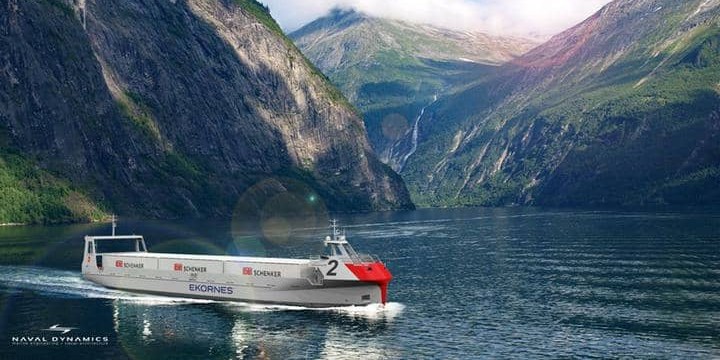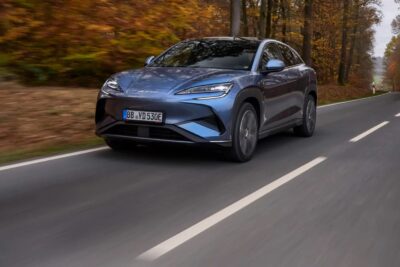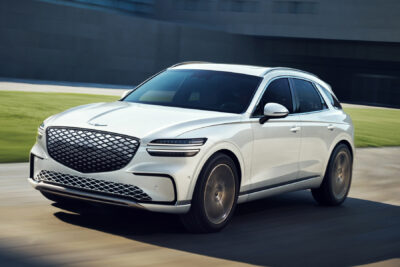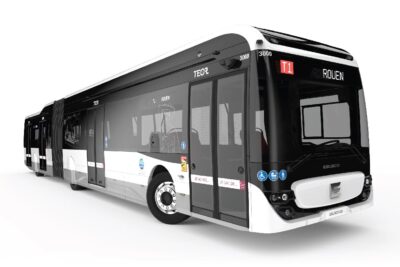Autonomous container feeder ship starts operation in Norway
Logistics provider DB Schenker is planning to operate an autonomous coastal container feeder ship with zero emissions in Norway. The all-electric container feeder ship is to be the first of its kind in the world.
DB Schenker is cooperating with the furniture giant Ekornes and Naval Dynamics, a ship design company. These partners have signed a corresponding preliminary study agreement with development partners Kongsberg, the technology provider and Massterly, the vessel operator and technical manager.
Container feeder ships are special cargo vessels that are used to transport containers to larger seaports, from where the goods are then transported further by much larger cargo ships.
The vessel will operate between Ekornes’ own port, Ikornnes, and the port of Ålesund that serves the main sea freight ports in Europe. The vessel will cover the 43 kilometre route at a speed of 7.7 knots within three hours. The 50-metre-long ship has a payload of 300 tonnes.
DB Schenker does not provide any further details about the ship’s propulsion system when the German logistics provider announced the Norwegian project. It only emphasises that it is to be an emission-free container feeder; elsewhere there is talk of a “zero-emission ship”. Thus, it remains open whether it will be a battery-electric propulsion system or a fuel cell system.
What is clear, however, is that the container ship will operate without a crew. Employees of Massterly’s Remote Operation Centre (ROC) will monitor and control the ship from shore. The planned bidirectional data communication solution between the ship and the ROC is to be another “turning point in the sea freight sector”, according to DB Schenker.
The as-yet unnamed vessel has been designed from the ground up for autonomous zero-emission operation and is expected to be operational by 2024. After unveiling the vessel, the parties involved want to take the next steps forward by obtaining approval from the Norwegian Maritime Authority, as well as potential governmental incentives for the sustainability and technology aspects of the project.
Roger Lunde, CEO, Ekornes AS said: “With this landmark project, we will meet our sustainability targets by using the most innovative technology available. Utilizing the autonomous electric container feeder for direct pickups of our Stressless products from our own dock in Ikornnes means that our total carbon footprint will be reduced significantly. We will also gain better control over, and greater flexibility with, our own logistics.”
Geir Håøy, CEO, Kongsberg pointed out that: “We’re beginning to see a general shift away from road transport of goods – with its considerable carbon footprint – toward clean, energy-efficient, short ocean freight transport.”
For project partner Kongsberg, this is not the first project on an autonomous zero-emission ship in Norway. Kongsberg is currently involved in several fully electric and autonomous vessel operations, including Yara Birkeland and ASKO.





0 Comments